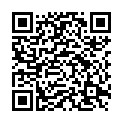|
|
|
| Module code: MAM_24_A_2.01.MNI |
|
2S (2 hours per week) |
|
2 |
| Semester: 1 |
| Mandatory course: yes |
Language of instruction:
English |
Assessment:
Written exam 120 min.
[updated 04.11.2020]
|
MAM_19_A_2.01.MNI (P241-0065) Engineering and Management, Master, ASPO 01.10.2019
, semester 2, mandatory course
MAM_24_A_2.01.MNI Engineering and Management, Master, SO 01.10.2024
, semester 1, mandatory course
Suitable for exchange students (learning agreement)
|
30 class hours (= 22.5 clock hours) over a 15-week period.
The total student study time is 60 hours (equivalent to 2 ECTS credits).
There are therefore 37.5 hours available for class preparation and follow-up work and exam preparation.
|
Recommended prerequisites (modules):
None.
|
Recommended as prerequisite for:
MAM_24_A_3.02.RWP Reading, Writing and Presenting for Academic Purposes
[updated 07.10.2024]
|
Module coordinator:
Dr. Julia Frisch |
Lecturer: Dr. Julia Frisch
[updated 29.10.2023]
|
Learning outcomes:
After successfully completing this module, students will have consolidated and expanded their job-related language and expression skills at level B2 of the Common European Framework of Reference for Languages acquired in the course of their Bachelor´s degree.
Through integrated training of the four basic skills of listening comprehension, reading comprehension, speaking and writing, this course consolidates skills and knowledge in the areas of pragmatics, lexis and grammar at a higher level, especially in the situations "Negotiating" and "Meetings" as well as "Intercultural Communication", which are relevant for the students and their later professional activities.
After successfully completing this module, students will have developed their intercultural awareness and will be able to recognize intercultural communication problems and critical incidents, analyze their causes and formulate recommendations for solving or avoiding them.
They will have mastered appropriate communication skills for oral and written contract negotiations and meetings and be able to use them to successfully negotiate a contract both orally and in writing and to participate in and chair meetings.
[updated 30.06.2024]
|
Module content:
- How good are your business manners?
- Intercultural communication in business
- Case studies
- Dealing with difficult situations (critical incidents)
- The language of negotiations
- Negotiating a contract (Business correspondence: Writing and understanding requests for quotations, quotations, counter-proposals; negotiating a contract face to face, on the telephone and virtually)
- Preparing a meeting (scheduling a meeting, agenda)
- Introductions and greetings
- Small talk
- Chairing a meeting
- Taking part in a meeting
Functional language:
- Polite language
- The language of indirectness
- Expressing an opinion
- Agreeing and disagreeing
- Suggesting
- Giving, accepting, asking for advice
- Criticizing
- Repairing, compensating, explaining
- Metacommunication: Talking about what we mean
[updated 30.06.2024]
|
Teaching methods/Media:
Teaching methods:
The learning goals will be achieved through integrated training of the four basic skills (listening comprehension, reading comprehension, speaking and writing) supported by multimedia, as well as the repetition of basic grammar and vocabulary in self-study phases.
Media:
Teaching and learning materials (print, audio, video), multimedia teaching and learning software for specific target groups.
[updated 04.11.2020]
|
Recommended or required reading:
Students will receive a list of recommended teaching and learning materials.
The following materials are free of charge for students of the htw saar. We recommend their use for independent learning:
- Christine Sick, unter Mitarbeit von Miriam Lange (2011): TechnoPlus English 2.0. Ein multimediales Sprachlernprogramm für Technisches Englisch und Business English. CD-ROM. EUROKEY.
Christine Sick (2015): TechnoPlus Englisch VocabApp (Mobile-Learning-Angebot insbesondere zum Grundwortschatz, alle Niveaustufen), EUROKEY.
[updated 04.11.2020]
|


